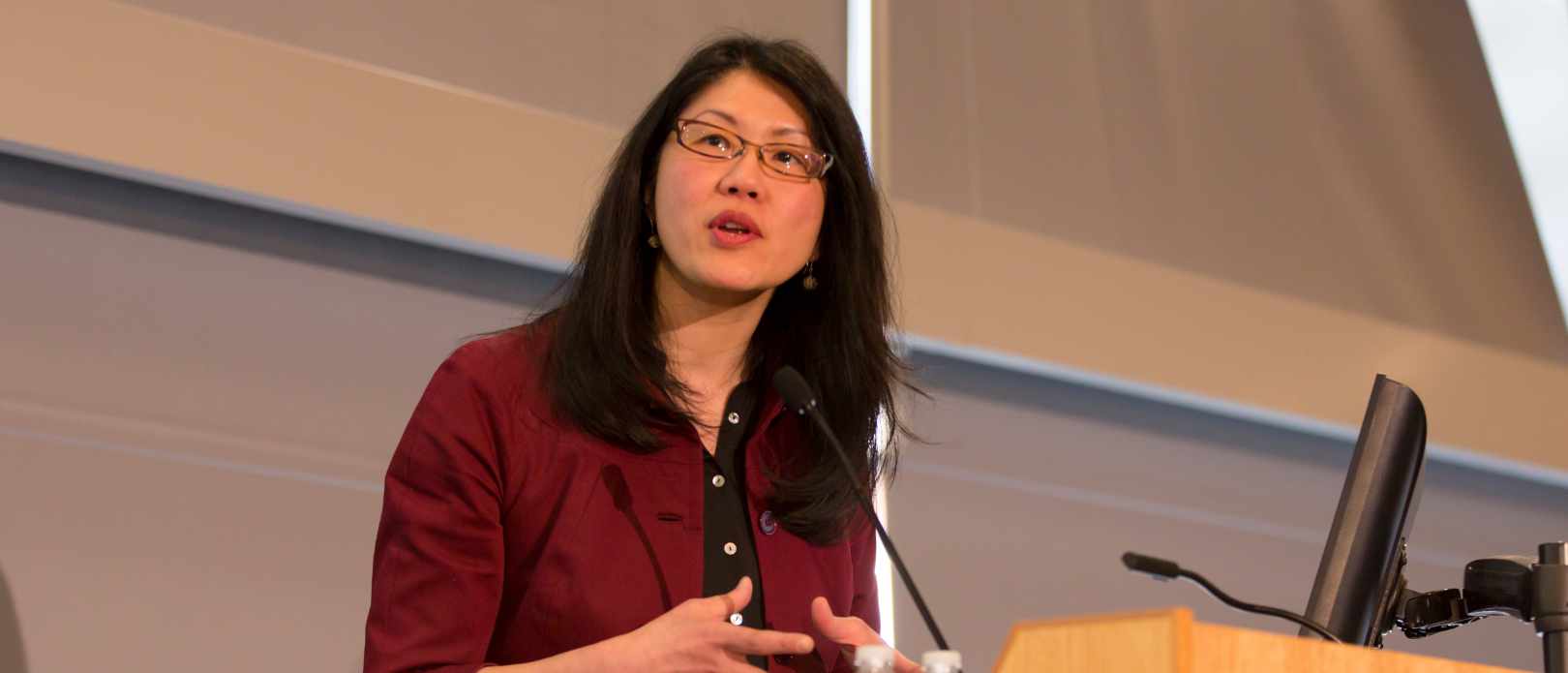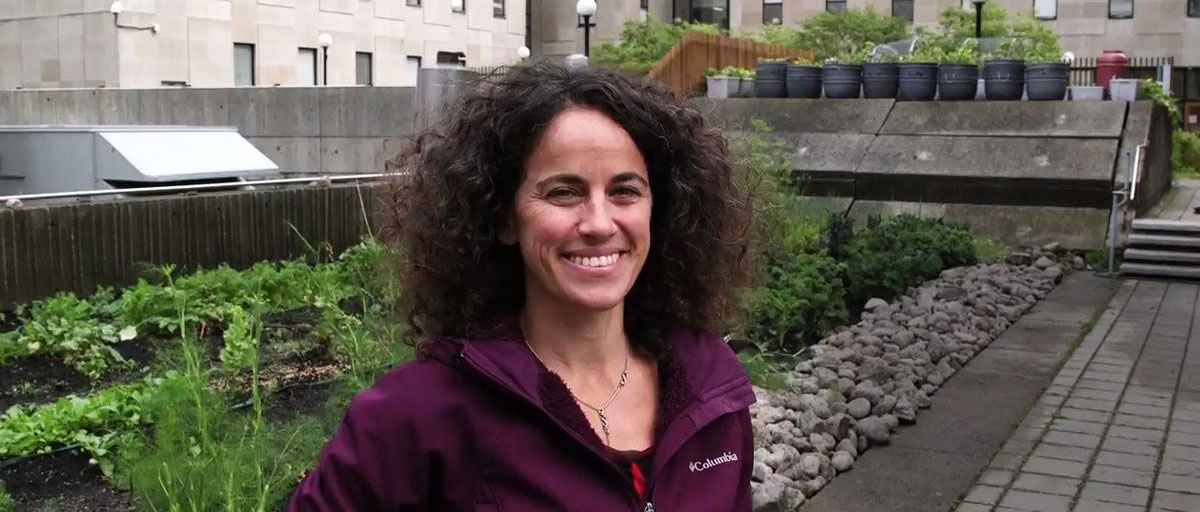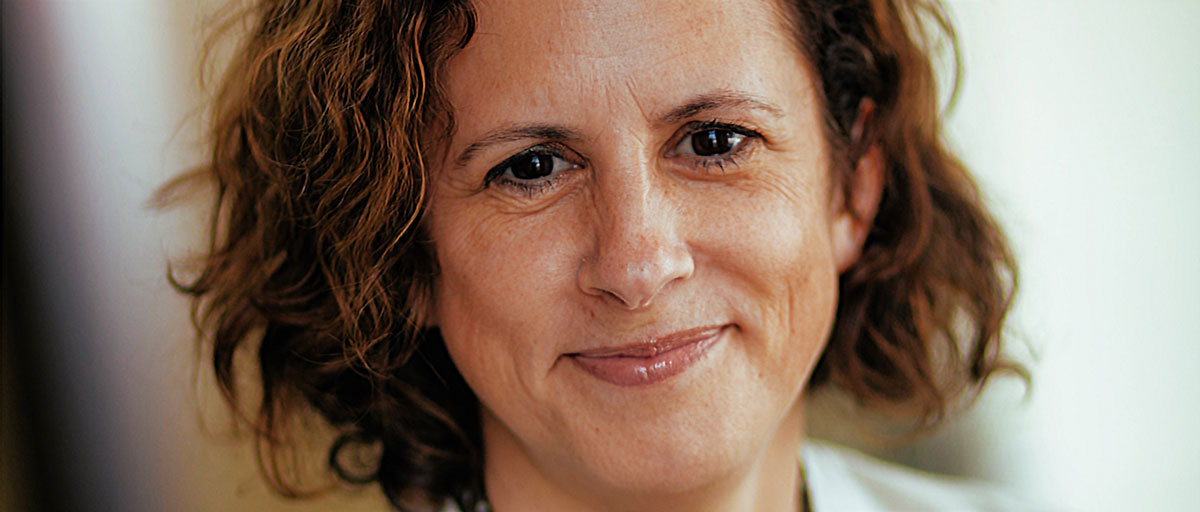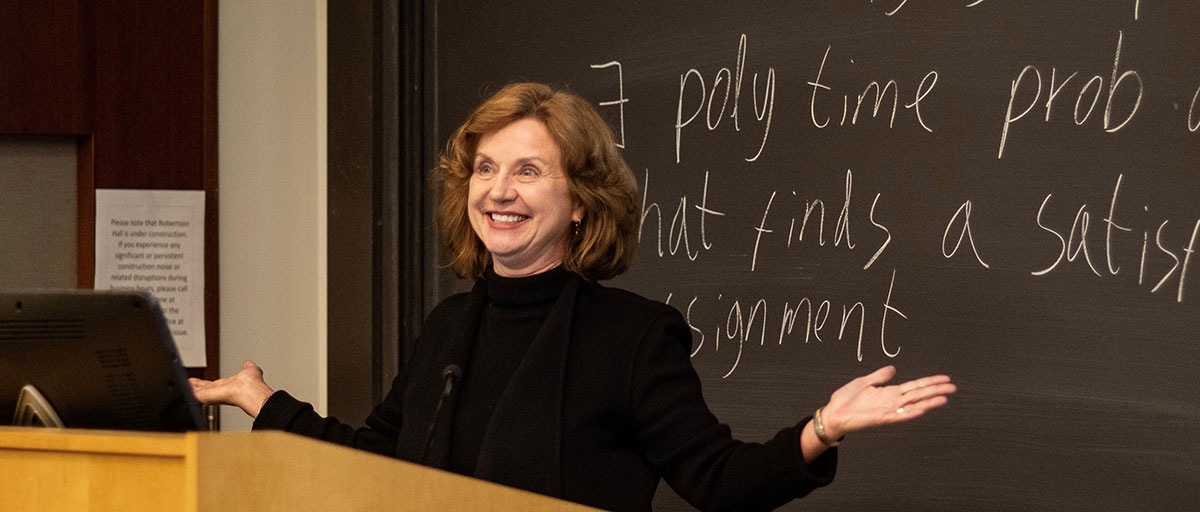INTRODUCING OUR SCIENTIFIC ADVISORY COUNCIL
Charting new territories in an urbanised world

Karen Seto is one of the world's leading experts on contemporary urbanization and global environmental change. She is also a member of the centre's science advisory council. Photo: K. Dennehy
Karen Seto, a Yale professor and member of the centre’s science advisory council adds important expertise and perspectives on cities to the centre’s research agenda
- The International Scientific Advisory Council (ISAC) is a body of internationally leading researchers providing strategic advice and guidance on the scientific development and direction of the Stockholm Resilience Centre (SRC)
- Council member Karen Seto is a Frederick C. Hixon Professor of Geography and Urbanization Science studies at Yale University
- She believes SRC's research is consistently pushing the envelope and charting new territory on important issues
It really is an urban jungle out there. More and more of us are emigrating to the world’s cities and towns, and this will come with a range of social and environmental challenges.
Karen Seto is one of the world's leading experts on contemporary urbanization and global environmental change. The Yale-based Frederick C. Hixon Professor of Geography and Urbanization Science studies how this rapid and growing urbanization will affect the planet, from biodiversity loss and land cover change, to diets and human well-being.
“I’m particularly interested in how climate change and other global environmental changes will affect the long-term habitability of urban areas,” she says. “Will they be livable, and how can we ensure adequate living conditions for all?”
Pushing the envelope
It’s exactly this kind of cutting edge inter- and transdisciplinary research that is crucial to help create a sustainable urban future, which is why Seto’s position on the international science advisory board (ISAC) is welcomed by all at the centre.
Seto is a fan of the centre’s approach and believes its research is consistently pushing the envelope and charting new territory on important issues.
The combination of examining sustainability through a complex systems lens while at the same time bringing together different perspectives makes the SRC a thought-leader in sustainability.
Karen Seto
Beyond the Global North bubble
When it comes to her role in the science advisory council, Seto looks to her impressive experience outside the sustainability bubble of the Global North.
“I hope my geographic perspective and many years of research experience in Asia will help the SRC strategize directions forward,” she says.
She has worked in India and China for 20+ years, pioneering methods to reconstruct urban land use with satellite imagery and developing novel methods to forecast urban expansion. We now know that many solutions developed for a particular system or place can have unintended consequences elsewhere or at a later point in time.
“The centre is poised to do path breaking work on such cross-boundary issues," says Seto.
“Creating solutions that do not result in these “leakages” is a key sustainability challenge and one where I’m confident the SRC can make an impact”.
A serious challenge
But it's not all rosy in today’s anti-science and alternative facts reality. Making progress towards sustainability, battling climate change, and eradicating poverty and disease means making decisions based on science, she says.
“This is a serious political and cultural challenge that SRC and other leading sustainability institutions must urgently address. If not, the science will have very little or limited uptake”.
It’s time to live up to the challenge.









